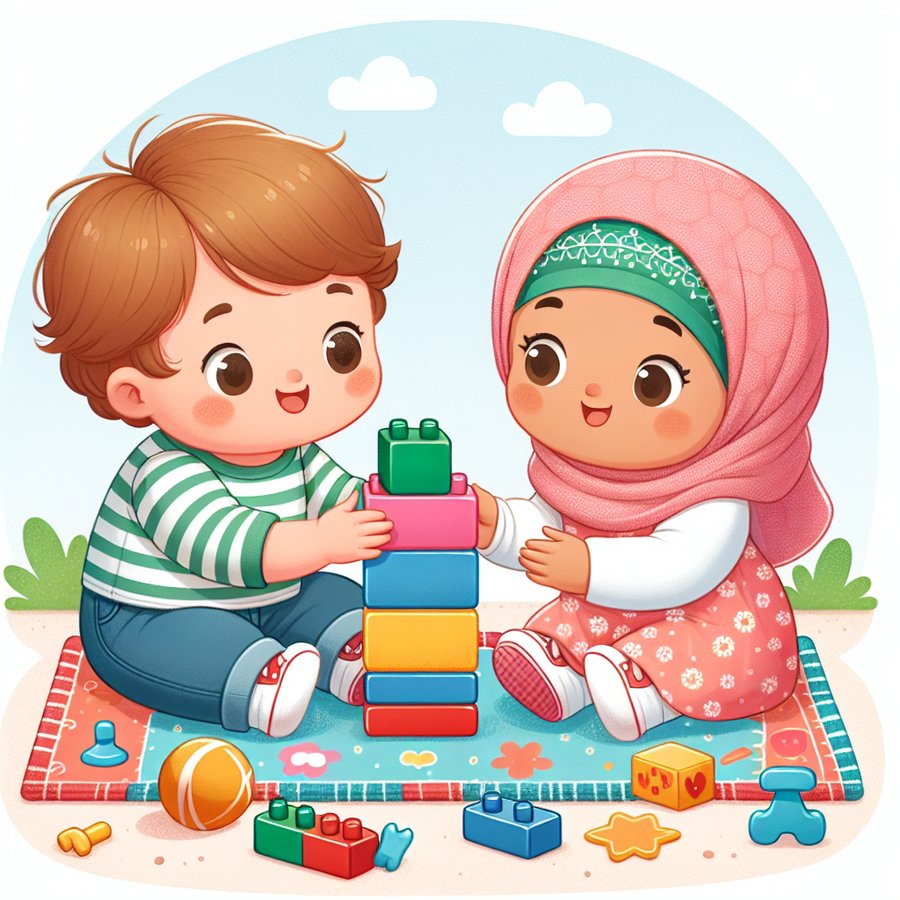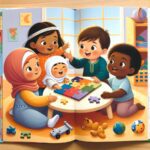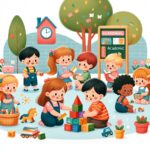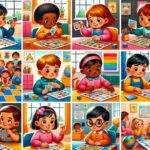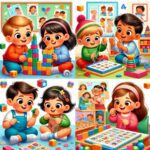Enhancing social skills in toddlers during playdates is not just about fun and games; it’s a critical aspect of their developmental journey. Playdates offer a unique opportunity for toddlers to learn how to interact with their peers, understand the concept of sharing, and develop empathy. As parents and caregivers, facilitating these interactions with thoughtfulness can lead to significant strides in a child’s social development.
Understanding the Importance of Social Skills in Early Childhood
Social skills are the foundation upon which children build their relationships. These skills involve effective communication, problem-solving abilities, and the capacity to share and cooperate with others. According to the Centers for Disease Control and Prevention, early childhood is a crucial period for social skill acquisition, laying the groundwork for successful interactions in later stages of life.
Playdates, therefore, become an essential arena for practicing these skills. They provide a structured yet flexible environment for toddlers to navigate social dynamics, learn turn-taking, and express themselves among peers. These early experiences with peers help in enhancing social skills in toddlers during playdates, fostering a sense of empathy and understanding that benefits them throughout their lives.
Enhancing Social Skills in Toddlers During Playdates
Organizing playdates with a focus on social skill enhancement involves more than just setting a time and place. It’s about creating an environment that encourages interaction, sharing, and emotional understanding among toddlers. Here are several strategies to make the most out of these gatherings:
- Choose activities that require cooperation and sharing, such as building blocks or simple board games.
- Encourage the use of positive language and praise when toddlers successfully navigate social situations.
- Facilitate discussions about feelings and empathy by reflecting on the emotions of characters in a storybook.
Moreover, resources like Maximizing the Developmental Benefits of Playdates offer invaluable insights into structuring playdates that promote both fun and learning. Remember, the goal is to provide a safe and nurturing space for toddlers to explore the complexities of social interactions under the guidance of caring adults.
A Broader Perspective: Social Skills Beyond Playdates
While playdates are a fantastic way to enhance social skills in toddlers, it’s important to remember that social development doesn’t stop there. Everyday moments offer countless opportunities for teaching and reinforcing these critical life skills. From a simple trip to the grocery store to family gatherings, each setting provides a unique context for toddlers to observe, learn, and practice social behaviors.
Incorporating lessons from Activities to Promote Empathy and Social Understanding in Toddlers into daily routines can significantly complement the skills learned during playdates. It’s about making the most of the myriad of teachable moments that naturally occur, guiding toddlers toward becoming well-rounded, socially adept individuals.
In conclusion, enhancing social skills in toddlers during playdates is a multifaceted approach that requires thoughtful planning, a nurturing environment, and the integration of daily social learning opportunities. By adopting these strategies, parents and caregivers can play a pivotal role in equipping toddlers with the skills they need for a lifetime of meaningful relationships and successful interactions.
For further reading on supporting your toddler’s development, consider exploring topics such as Encouraging Self-Feeding Skills in Infants, Significance of Parallel Play in Toddler Years, and Supporting Emotional Development through Attachment Parenting. These resources can provide additional insights into fostering a holistic developmental environment for your toddler.

